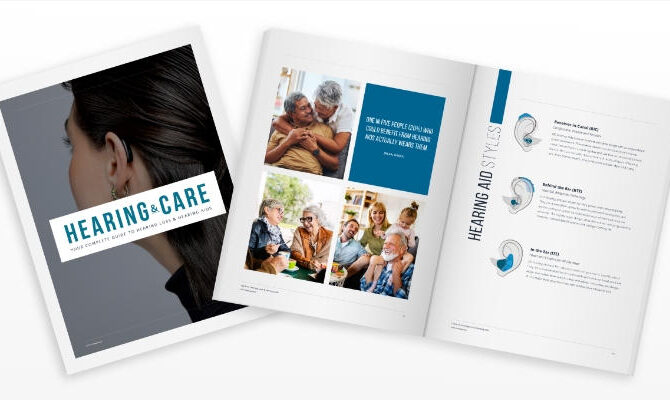Living with hearing loss can significantly disrupt your day-to-day activities, impacting everything from work meetings to family gatherings. Conversations become challenging to follow, leading to misunderstandings and feelings of isolation. Simple tasks like talking on the phone or watching TV may require extra effort and strain. At Journey Audiology and Hearing Care, our audiologists understand how important life’s everyday moments are, which is why we are committed to helping you hear better with our comprehensive testing, education and treatment program.
Understanding Types of Hearing Loss
When you think of hearing loss you probably assume every case is similar – simply a loss of hearing. However, there are actually three different types of hearing loss – conductive, sensorineural and mixed – each with their own unique characteristics and specific approaches to care. Understanding these distinctions is essential for effective treatment and management.
Conductive hearing loss poses a unique challenge as it obstructs sound to the inner ear and cochlea. It can stem from various issues in the ear canal, eardrum or middle ear components like ossicles and the eustachian tube. Despite its impact on daily communication, conductive hearing loss differs from other types by leaving the inner ear and auditory nerve unaffected.
In contrast, sensorineural hearing loss occurs due to issues within the sensory receptors of the hearing system, particularly in the cochlea or auditory nerve. Commonly arising from abnormalities or damage to cochlear hair cells, this type of hearing loss leads to symptoms like muffled speech and tinnitus. Unlike conductive loss, sensorineural hearing loss tends to be permanent, necessitating ongoing monitoring and treatment with options like hearing aids.
Mixed hearing loss combines elements of both conductive and sensorineural hearing loss, involving issues in both the inner and outer or middle ear. Treatment approaches for mixed hearing loss may include medical management for temporary conductive issues, alongside hearing aids for long-term hearing needs. Regular evaluation by audiologists remains crucial for effectively managing mixed hearing loss and ensuring optimal hearing health.
What Are the Impacts of Untreated Hearing Loss?
Untreated hearing loss can cause challenges that extend beyond just difficulty in communication. One significant impact is on cognitive function. When the brain receives reduced auditory signals due to untreated hearing loss, it must work harder to process and understand speech and other sounds. This increased cognitive load can lead to cognitive fatigue and may contribute to accelerated cognitive decline over time. Research suggests that individuals with untreated hearing loss may experience difficulties in areas such as memory, attention and executive function, which can inhibit their ability to perform daily tasks and engage in social interactions.
Untreated hearing loss has been linked to higher rates of depression and anxiety. The inability to fully engage in social activities and communicate effectively with others can take a toll on mental health, leading to feelings of sadness and low self-esteem. Struggling to hear and participate in conversations can lead to a sense of disconnection from others, which can exacerbate feelings of loneliness and isolation. This can be particularly challenging in social settings, where background noise and multiple speakers can make it even more difficult to follow conversations and feel included.
Additionally, untreated hearing loss can impact various aspects of daily life, including work performance, relationships and overall quality of life. In the workplace, untreated hearing loss may lead to difficulties in communication with colleagues and clients, potentially hindering productivity and career advancement. In personal relationships, untreated hearing loss can strain communication and intimacy, leading to misunderstandings and conflicts. Seeking treatment for hearing loss ensures you aren’t only preserving your future auditory health, but you’re caring for other facets of your wellness, too.



